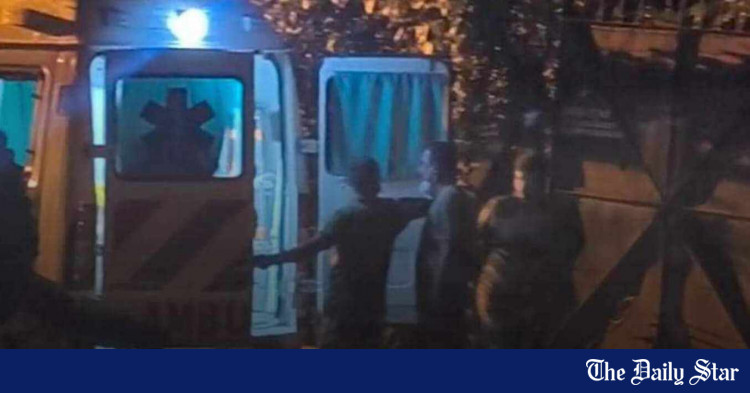Fishermen worried as BGB, BSF step up patrol in Padma
Suzon Ali . Rajshahi 06 October, 2024, 00:23
Fishermen in Charghat and Bagha upazilas in Rajshahi district have been passing their days in worry as the Board Guard Bangladesh and the Border Security Force of India stepped up patrol in the Padma River following the recent arrests of four fishermen from both sides.
On Wednesday, BSF personnel picked up two Bangladeshi fishermen – Manik Uddin Sheikh, 35, and Mofazzal Hossain Sheikh, 40, of Chak Muktarpur village under Charghat upazila – while they were fishing in the Padma River at a location near Rajshahi Cadet College.
In the official Twitter handle of the South Bengal frontier, BSF claimed that they had arrested the two Bangladesh nationals for fishing illegally approximately one kilometer inside Indian territory in the Padma.
According to BGB officials and Indian media reports, the two Bangladesh nationals were handed over to Sagarpara police station of West Bengal’s Murshidabad district and sent to jail for entering India illegally.
On the same day, the members of BGB detained two Indian nationals– Aynul Haque, 55, son of Abdur Rahim, and Shoaib Nabi Sheikh, 40, son of German Ali of Lalkup village under Sagarpara police station – from the Padma River in the afternoon for entering Bangladesh territory illegally.
The Indian nationalists were then handed over to Charghat police and sent to jail on the following day.
Following the incidents, BSF and BGB stepped up patrol in the Padma River.
As a result, the fishermen in Charghat and Bagha upazilas were avoiding to go to the Padma River in fear of arrest by BSF personnel.
Fishermen and people living on the bank of the Padma River alleged that BSF personnel were entering Bangladesh territory randomly crossing the Bangladeh-India bordering line.
Fisherman Sahabuddin Sabu of the Gopalpur area under Charghat upazila in Rajshahi said that most of the fishermen were illiterate and did not have a proper understanding over the international boundary line.
‘The Padma River is now in full bloom. It is nearly impossible to determine the boundary lines in the river, especially when fishing at night. BSF has been aggressively patrolling using speed boats after the arrest of two Indian fishermen. Because of fear, none of the Bangladeshi fishermen are going to the river,’ he said.
Habibur Rahman, president of a local fishermen’s association, said that Indian fishermen often entered Bangladesh territory and caught fish in the Padma.
‘But we are now afraid of the BSF even in our own territory. The situation has become more complicated following the arrest of two Indian nationals. I don’t know how and when this situation will become normal. But if such a situation continues, most of the fishermen will not go to the river as BSF personnel do not hesitate to open fire,’ he said.
Fish trader Bahadur Ali said that an average of 400 kilograms of fish, caught from the river, was sold every day in his depot. ‘As the fishermen have stopped fishing in the Padma, I do not have any alternative to shut my depot,’ he added.
Former municipal councilor Md Khodabox Ali alleged that BSF picked up two Bangladeshi fishermen inside the Bangladesh territory of the Padma in violation of international border law.
‘BGB is asking everyone to be careful while fishing in the river. How will the fishermen be careful if BSF personnel pick them up inside Bangladesh territory?’ he said, adding that none of the fishermen were going to the middle of the river.
‘A few fishermen are now fishing along the bank of the river,’ he said.
BGB-1 Battalion commander lieutenant colonel Motiul Islam Mondal, however, said that Bangladeshi fishermen should not be worried. ‘We have, however, urged them to catch fish carefully so that they do not enter Indian territory by crossing the borderline,’ he added.







 www.newagebd.net
www.newagebd.net
























































